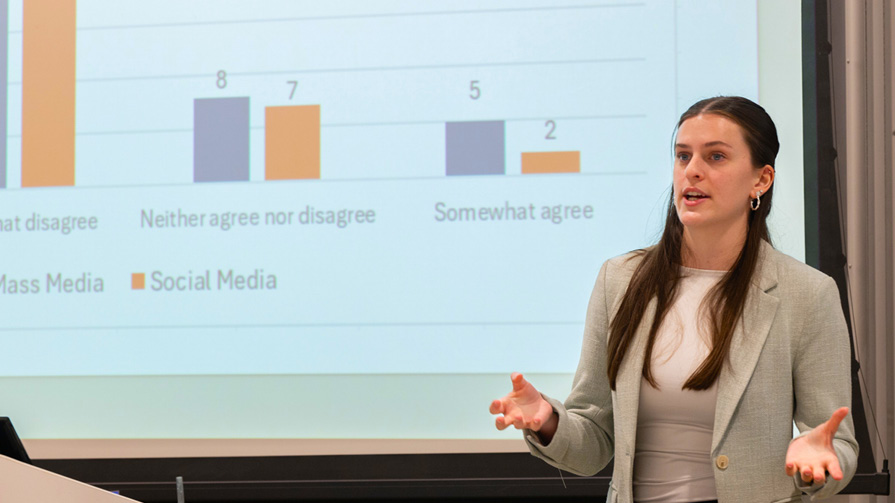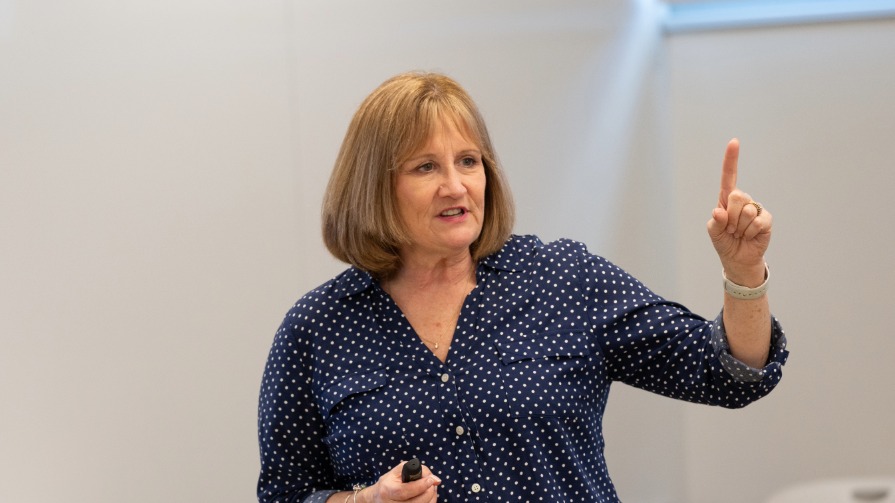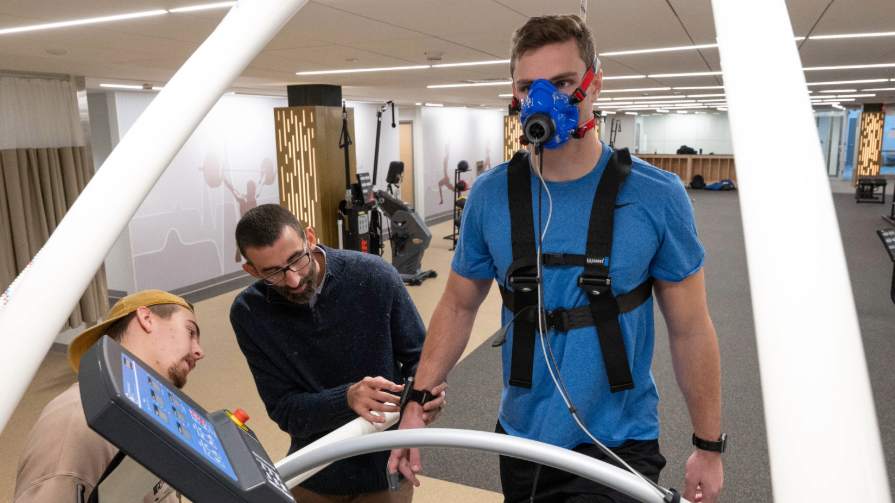In her Adult Development and Aging course, Professor of Psychology Nanci Weinberger, Ph.D., came to know Ryan Brown ’17 as an enthusiastic, engaged psychology major. The course became the foundation of a close mentor-mentee relationship that has since led to a bonafide friendship.
That’s why Weinberger was elated – but not surprised – to learn of Brown’s accomplishment as a second-year Ph.D. researcher at Rice University in Houston. There, Brown is part of the ground-breaking Project Heart, an initiative funded by the National Institutes of Health (NIH) investigating the impact of bereavement on risk for cardiovascular disease.
“I'm so proud of her. To see that she’s able to go out and do these things is really exciting.”
Brown helped lead one of the early studies from Project Heart – the first to demonstrate a positive relationship between inflammation in the body (a key predictor of heart problems) and severity of grief for bereaved spouses. Brown and the study’s investigators had hoped to pinpoint the mechanisms behind cardiovascular-related death after the loss of a spouse – or “death by broken heart.” Her advisor, Christopher Fagundes, is a rising star in the field of psychoneuroimmunology and the lead author and investigator for the project, funded by a $4-million NIH grant.
“I’m so proud of her. I was always impressed by her,” says Weinberger, noting that Brown is well on her way to making her mark as a scholar. “This is fantastic. Just to see that she’s able to go out and do these things is really exciting.”
“The Psychology department at Bryant has the right atmosphere to grow researchers. They really care, and that always comes through.”
Her path to Rice University and her current work, Brown says, greatly benefited from the mentoring she enjoyed with Weinberger and other faculty. “The Psychology department at Bryant has the right atmosphere to grow researchers. They really care, and that always comes through.”
One of the most pivotal mentorship experiences for Brown occurred during her research assistantship for the psychology department. In the position, she worked closely with faculty on their research, and she attended faculty research meetings, offering her an invaluable opportunity. “Her insights were so phenomenal,” says Weinberger, “that she became a co-author of a study on hospital playroom design with us.”
“That’s when I fell in love with research,” says Brown. “I remember calling my mom when I made my first successful contribution at one of those meetings. I can’t emphasize enough the value of that kind of space, where you can be timid and unsure, then get such good to reinforcement and encouragement. It helped me find my voice.”
By her senior year and the completion of her assistantship, Brown added to her accomplishments a number of presentations of original research at scholarly conferences, including a paper presentation with Weinberger, and received the New England Psychological Association Honorary Undergraduate Scholar award as well as several top academic awards from the University.
Coming full circle
Today, Bryant students are learning from Brown’s research findings at Rice. The study is now required reading in Weinberger's Adult Development and Aging course. Weinberger says the study adds to class discussion on bereavement and its impact on the body, and it perfectly illustrates the depth of research involved to uncover these processes.
“That course was the first time I was exposed to Professor Weinberger and her work, which is so close to what I’m doing now,” says Brown, who hopes to become a professor. “Having the study included on her syllabus, like a lot of things with Professor Weinberger, just feels really nice, full circle, complete.”






